In the beginning, they didn’t care for Donald Trump.
“Trump’s a buffoon,” David Searles said before casting a vote for Marco Rubio in the New Hampshire primary.
“He scares me,” Rebecca Meyer said before settling on Ben Carson in South Carolina’s primary.
“He’s not presidential,” Gail Francioli said after backing Ohio Gov. John Kasich in that state’s primary.
Yet like nearly nine out of 10 Republicans nationwide, Searles, Meyer and Francioli supported Trump in the general election. And like the vast majority of Republicans, they support him still.
In fact, these one-time-skeptics are part of the bulwark that is bolstering a President whose first month in office roiled the nation.
Consider Wendy Housel of Summerville, South Carolina. She was so distraught by her party’s nominee that she cried in the voting booth. She cast a ballot for Trump anyway, and prayed it was the right thing to do.
Now? “So far, I’ve liked what I’ve seen,” Housel said.
While reporting on the presidential campaign for CNN’s book, “Unprecedented: The Election That Changed Everything,” I interviewed voters in disparate regions of America. I attended rallies for all the major candidates, as well as both parties’ conventions. Perhaps not surprisingly, given the size of the GOP field, most Republicans told me they didn’t initially back Trump. Even some people who voted for him in the primaries did so only because their first and, at times, second choices had dropped out.
Trump’s provocative comments about women and minorities – including assertions that Mexican immigrants were “rapists,” that he could grab women’s genitals with impunity and that African Americans had never been worse off than they were last year – along with his misrepresentation of facts and tendency to boast gave Democrats hope that significant numbers of Republicans, particularly women, would cross party lines and vote for Hillary Clinton. They did not.
When it came time to vote, Republicans were as loyal to their party as Democrats were to theirs. And now, they are standing solidly behind Trump, even as his approval rating is the lowest of any new president in modern times. Trump’s 40% approval rating is 21 points below average for a president finishing his first month in office, while his 87% approval rating among Republicans is second only to that of George W. Bush among all GOP presidents elected in the last 65 years, Gallup reported Friday.
Put another way, a greater percentage of Republicans support Trump than backed Ronald Reagan after his first four weeks in the Oval Office.
I called a number of Republicans I met along the campaign trail to find out what they think of Trump now. Some bemoaned his blustery style. None disputed his policies.
The reason is simple: They agree with him.
‘A breath of fresh air’
“I’m ecstatic! It’s a breath of fresh air,” Judy Griffin exclaimed when I asked her about the nascent Trump presidency. “The country was going on a near-death experience collision. Political correctness was about to strangle us all.”
A 66-year-old from Woodstock, Georgia, Griffin began the campaign season supporting Wisconsin Gov. Scott Walker. She was such a big fan that she went to Wisconsin in 2012 to help Walker defeat a recall campaign. When he dropped out of the presidential race months before the first votes were cast, Griffin switched her allegiance to Rubio, the young senator from Florida. When I met her at the Republican National Convention in Cleveland – sporting a straw hat bedecked with GOP buttons dating back to Barry Goldwater – Griffin was fully committed to Trump, if for no other reason than he was, by then, the nominee.
“The only right thing to do was get behind the guy who won the race,” she said.
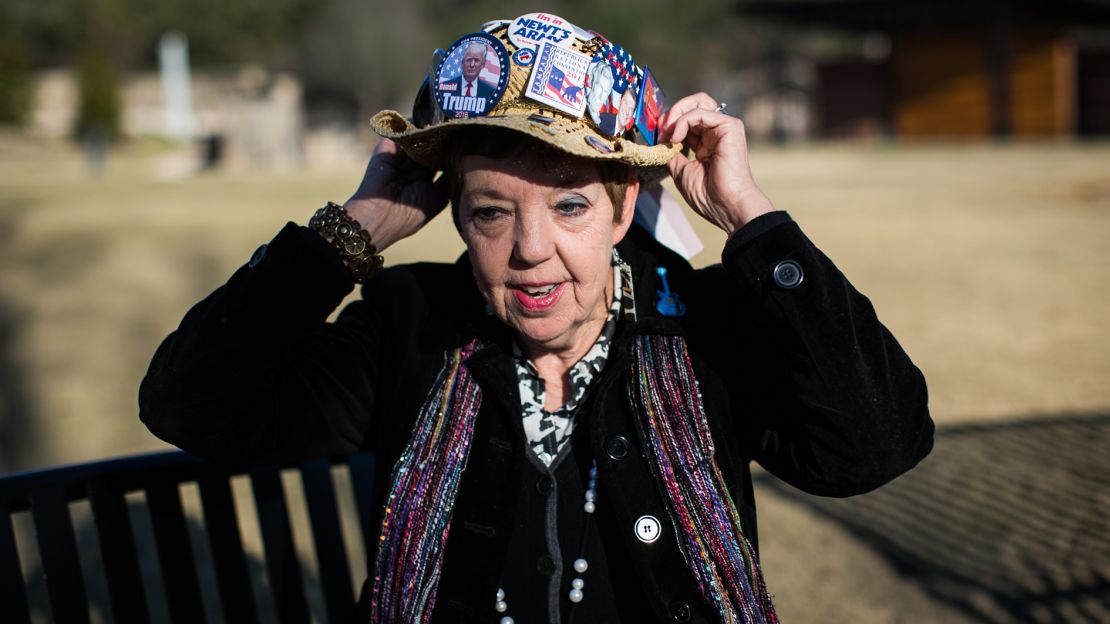
Although all the voters I contacted said they continued to support Trump, most volunteered they were wary about his flaws, particularly what they portrayed as impetuous behavior. Not Griffin. Where others see foibles, she sees assets.
“He’s the perfect reality show star. He’s now starring in his own reality show,” she said. “At this point in history and in our country, with all the issues that we have to face, it may be time for non-convention to take the lead and take the bull by the horn and start wrestling some of these issues that are serious issues for our country.”
Griffin, formerly the director of development for a Christian school, described herself as “very conservative” and “very pro-life.” She said she wants Trump to take on ISIS because “you have to confront evil.” She also wants him to rebuild the military, reduce the national debt and bring back jobs – things she criticized former President Barack Obama for failing to do. She added that Trump could do more to improve race relations than did the first African-American president.
“I think we’re a more divided country than we were eight years ago. Having an African-American in the White House, I don’t think, did anything to improve our race relations,” Griffin said. “When you go into the inner cities, people need jobs, the kids need hope….We’re at a crossroads for needing someone that could take us down a new direction.”
Indeed, Griffin was so excited about Trump that she flew to Washington for his inauguration. “I have a lot of hope for him,” she said.
‘I have a good feeling about him’
Gail Francioli sat by the window in Dewey’s Coffee House reading a short book entitled, “Grieving with the Help of Your Catholic Faith.” It was July of last year and the Republican convention was taking place a few miles away in downtown Cleveland. But her thoughts were elsewhere, as she struggled to heal after the death of her mother the previous August. She set the book down to talk to me.
“I have never missed an election,” Francioli said. Her mother, the long-time secretary of the Cuyahoga County Republican Party, “was so excited when she heard the convention was coming to Cleveland,” she noted.
Francioli, 66, retired when her job as a licensed practical nurse was eliminated – a victim of the economy that Trump pledged to fix. Still, the soft-spoken Francioli had no kind words for the GOP nominee.
“Trump is not good for this country. He’s not presidential,” she said. “His character leaves a lot to be desired. The way he insults people, it makes me cry. The children! I’m embarrassed.”
The only good thing about Trump, she said, was his running mate, Mike Pence.
“I’m praying for a miracle,” Francioli said. “I’m praying that either Trump gets out” – she paused – “I’m praying for something.”
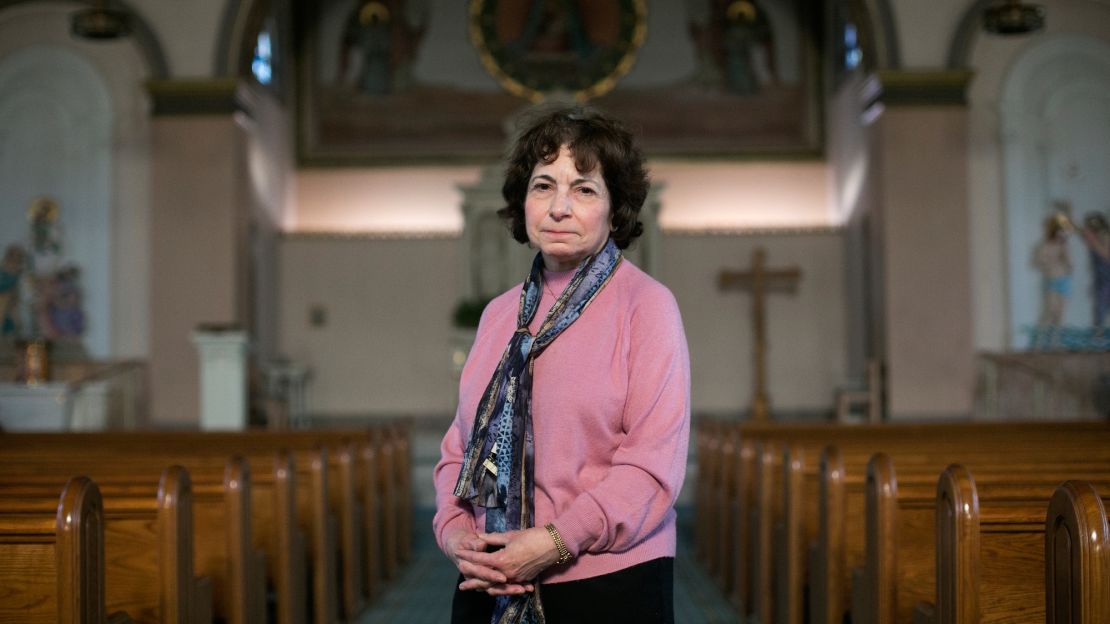
Even as she prayed, Francioli said she knew she ultimately would vote for Trump. Clinton, she said, was “untrustworthy.” And as an avowed opponent of abortion rights, flag burning, same-sex marriage and adoptions by same-sex couples, Francioli said she wanted a president who would populate the Supreme Court with conservatives.
“I don’t care for Trump, but he’s the lesser of two evils,” she said firmly. His shortcomings: “He’s not presidential. I don’t like the way he speaks. There’s no reason for him to insult people. I don’t see any plans that could be implemented. I don’t like his mannerisms.”
And, in case there was a kernel of doubt about her sentiments: “I don’t like the way he waves his hands.”
Trump hasn’t changed since that July day. But Francioli has.
“So, I voted for Trump,” she said when I called her this month. “I didn’t care for his personality, and he doesn’t think before he speaks and he’s kind of rash. But I’m glad that I did. I’m glad that he’s come down on the refugee immigration stance. I know it’s difficult, but we have to protect our country….
“I have a good feeling about him,” she said. “He seems like he’s going to be good.”
As for her previous trepidations, Francioli said, “I got to like his policies and I was able to put his personality aside.”
Indeed, Francioli offered a substantial list of subjects on which she agrees with Trump. “He’s going to increase the military, going to protect this country, build a wall, border control, Obamacare,” she said. “He’s bringing jobs back.” A regular participant in church-led marches outside an abortion clinic, she added that she expects Trump to place further restrictions on the procedure.
When I asked if there was anything she disliked about the man whose behavior used to bring her to tears, Francioli responded flatly: “Not that I can think of.”
‘I agree with many of the policies’
“Trump is definitely out,” Dave Searles declared when I met him one year ago. He was wedged into a crowd, waiting to hear his candidate, Rubio, who had foundered during a debate the previous night.
“It’s given me a little pause,” said Searles, a software developer from Windham, New Hampshire.
But Searles wasn’t happy with the alternatives. John Kasich was too moderate. Chris Christie and Jeb Bush didn’t stand a chance of winning. Ted Cruz was “a calculating weasel.”
He saved some of his harshest words for the billionaire from New York. “Trump’s a buffoon,” Searles declared. “He’s offered not one single policy, unless you consider building a wall a policy. He’s vulgar.”
Two days later, Searles cast his vote for Rubio in New Hampshire’s primary. Ten months and one day later, he voted for Trump.
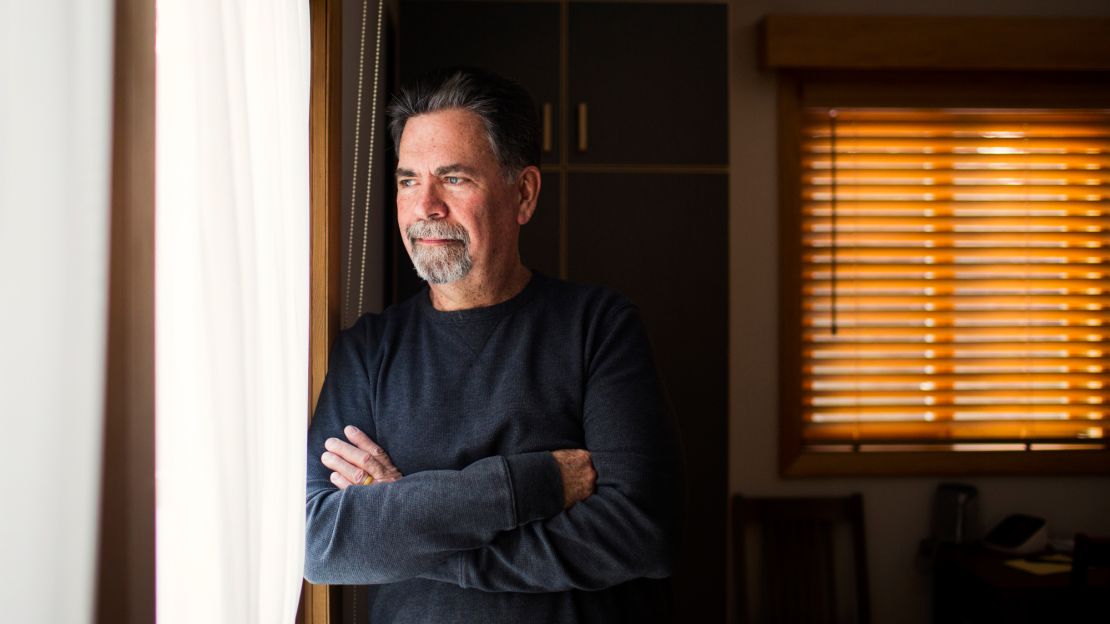
“I kept hoping for someone a little more sane, a little more –,” Searles left the sentence hanging during our recent conversation. “I was rather puzzled and dismayed at how Trump seemed to stay up at the top.”
Despite his misgivings, he said that although “there was much I didn’t like about him, there was far more I didn’t like about Hillary Clinton.”
Searles, 61, gives the President’s performance mixed reviews. He said Trump should let go of peripheral concerns, such as the size of the crowd at his inauguration or how “The Apprentice” is doing in his absence. When it comes to issues, however, he gives Trump two thumbs’ up.
“For the most part, I agree with many of the policies he’s looking to do. That’s certainly the upside,” Searles said. “The downside is sometimes he can be rather petty. I wish he could just let things go and be a bigger person.”
Searles said he supported Trump’s decision – knocked down by federal courts – to restrict travel from seven predominately Muslim countries, as well as his pledge to build a wall along the Mexican border (though he doubts that the President will succeed in making Mexico foot the bill).
He also favors Trump’s push to roll back regulations that Searles said have “stifled” businesses, including the software company that hasn’t been stable enough to give him a raise in 10 years.
Internationally, Searles said he is optimistic that the US will “have a stronger presence on the world stage.” He appreciates Trump’s tough talk.
“I felt that the Obama administration was preoccupied with not offending people. As a result, I think some nations that normally would not try some things are seeing how much they can get away with,” he said, pointing specifically to Iran. “Sometimes, you have to smack them across the jaw. I’m not talking about starting World War III. But at some point, you have to say enough’s enough.”
Searles said he thought Trump got off to a strong start on Inauguration Day, when he promised to take on the “American carnage” that he said had torn through the nation, leaving poverty, crime, drugs, gangs, shuttered factories and bad schools in its wake.
“I’m surprised how many people said it was dark,” Searles said of Trump’s inaugural address. On the contrary, he said he was heartened that the President put a spotlight on the problems of inner cities, which Searles said politicians in both parties have too long ignored.
Searles, an evangelical Christian, said he was pleased that Trump nominated conservative Judge Neil Gorsuch to replace the late Supreme Court Justice Antonin Scalia, who was a leader among conservative jurists. In a position not frequently taken by political partisans, Searles said that if a more liberal justice departs, Trump should nominate someone in that person’s image. “Stacking the deck would just produce more conflict,” he said.
“Trump is in this unique position because he’s somewhat unpredictable in terms of how he’s going to govern,” Searles said. “He’s been a Democrat in the past. He’s had some liberal views in the past. Even now, he has some conservative views and some liberal views. He’s really that third-party candidate that just ran under the Republican banner.”
‘I’d do things differently’
Even when she cast her vote for Trump, Rebecca Meyer was not wholly convinced.
A veteran of the California National Guard and wife of a Marine Corps aviator, Meyer, 39, always has voted Republican. “But I was very concerned as a woman about some of the rhetoric,” she told me recently. “I had a really hard time with some of the things I was hearing from Donald Trump.” The “Access Hollywood” tape, in which Trump bragged about sexually assaulting women, was “jarring,” she said.
Still, Meyer said she was reluctant to vote for Clinton given the FBI investigation into her use of a private email server as secretary of state and what Meyer feared would be a “pay to play” administration (a charge levied by Trump). Furthermore, she was disturbed by Clinton’s response to the 2012 attack on the US mission in Benghazi, Libya, which left the ambassador and three other Americans dead.
“They had equally egregious statements or comments that could be given weight depending on your morals,” Meyer said of both major-party nominees.
In the end, Meyer returned to her conservative, anti-abortion roots. But it was a long journey.
In the weeks leading up to the South Carolina primary last February, Meyer tried to meet every candidate she could. She took selfies with several of them, asked questions when possible and blogged about the race for a Marine family website called USMCLife.com.
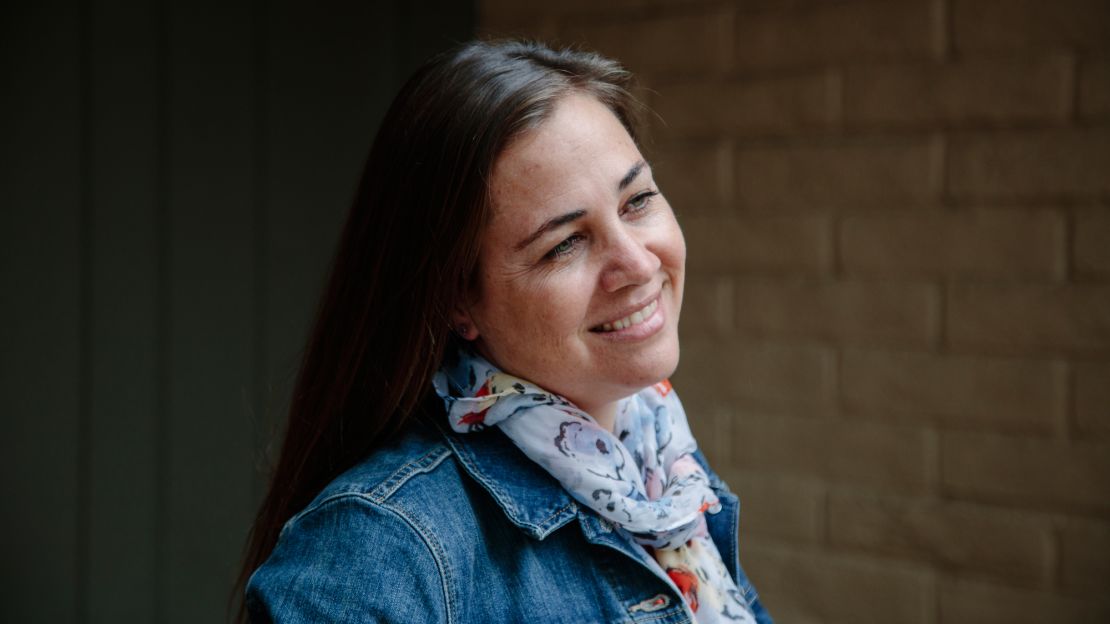
When we first met, at a Columbia town hall featuring Bush, Meyer was wavering among several Republican candidates, including Kasich, Rubio and the former Florida governor. She said she initially supported Carson, the retired neurosurgeon who now runs the Department of Housing and Urban Development, but decided she didn’t want to “throw away” her vote on someone who couldn’t win. An online test concluded her views lined up with those of Cruz, but Meyer said she found the Texas senator to be “disingenuous.”
During the town hall, Meyer asked Bush how he would motivate the military and improve services for veterans. His answer, replete with specifics, pleased her.
The next night, I ran into Meyer at a large Trump rally in the cavernous North Charleston Coliseum. That’s when she said he scared her. Nonetheless, she hoped to get some face time with him.
“I want to ask if his edginess and brassiness will make it hard to make moral decisions,” she told me. She didn’t get an answer, but she did manage to grab an autograph for her brother.
A year and an inauguration later, Meyer – who moved from Beaufort, South Carolina, to San Diego last summer – remains dubious about Trump’s style.
But she is generally content with his policies.
She supported his decision to “pause” travel from the seven Muslim countries, though she criticized him for lashing out at the judges who blocked enforcement of the ban. “It would be nice if he would respect the position that these people have earned,” she said. She agrees that America should curb illegal immigration, though she would prefer to make it easier for foreigners to move here legally. As a high school teacher in southern California, Meyer said, “I have kids crying their eyes out because they think their family members can’t come across the border.”
She is hopeful that Trump will continue to name conservative judges to the federal bench. She also wants him to replace Obamacare, which she said is fraught with fines, paperwork, billing problems, increasing costs and the kind of red tape that led a relative to travel to Mexico for an operation that was too expensive at home. At the same time, she acknowledged that crafting a new plan is no simple undertaking.
“I don’t want health care reform to take too much time because people deserve comprehensive health care options now, but I also don’t want it to just ‘get done’ for the sake of fulfilling a campaign promise,” Meyer wrote in an email following one of our telephone conversations. “The simple answer, for me, is not to reinvent the wheel; rather, look at other countries’ models that work and then shape them to better aid our citizens. Ask doctors, hospital administrators, the people, and have the plan not be politically motivated….Maybe I’m too idealistic and I know it’s not that simple but it seems like a good starting point?”
Policies aside, Meyer has some gripes about Trump. The public school English and technology teacher had harsh words for Trump’s education secretary, Betsy DeVos, whom she said “is not supportive enough of public education.” She was particularly incensed that, during her Senate confirmation hearing, DeVos seemed unfamiliar with the federal law that protects students with disabilities.
She also said Trump should stop worrying about unimportant issues and picking Twitter fights.
“If I were in charge, I’d do things differently,” she said. “I wouldn’t have paid any attention to the nonsense and I would have gotten to business. But Trump has created a platform where people love the sensationalism of it all. I understand it. But the sensationalism of it all can stop. He can put on his suit and his tie and comb his hair and get to work. He can use his Twitter account to inform the American people, but not to be petty, show the American people that he’s getting down to business so that people who opposed him can say there is a leader there….
“I wake up and I just hope that something clicks and tomorrow he’ll be more presidential.”
Finally, Meyer had some thoughts about the mood of the nation in the Trump era. She told me on the phone she would like to see Trump show a little more empathy, to demonstrate that he’s “a leader of all people.” Later, she sent me an email that addressed the divide tearing at the fabric of this country, offering words that belie stereotypes about some Trump supporters.
“I have a unique perspective and am blessed to work at a culturally diverse school – so my preconceived ideas can be changed through real daily experiences walking alongside my students and hearing about their pain, their lives, their concerns, their struggles,” Meyer wrote. “I wish more Americans could have that same experience. It might change their hearts.”
‘Trump is about change’
Eric Johnson is a minority within a minority, an African-American who voted for Trump.
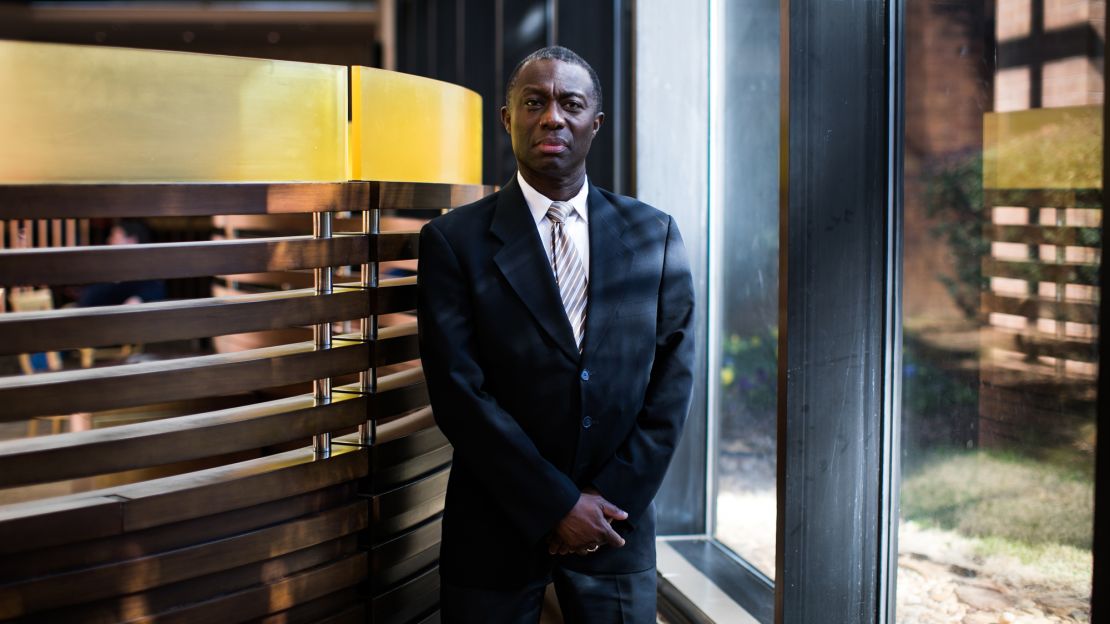
During the Republican National Convention, Johnson was unflinching: “Trump has brought people out of the attic. He got the crazy uncle who has the Confederate flag in the attic – he got him out…We have the big-tent philosophy, but a lot of these people come in and haven’t been cleaned up enough.”
Critics said Trump was issuing dog whistles, appealing to white supremacists, anti-Semites and others who had been in the shadows in recent years. Clinton gave an entire speech about Trump’s support among the so-called alt-right, people she placed in a “basket of deplorables.” Trump denied the charge and lambasted Clinton for calling Americans deplorable.
Johnson, a 53-year-old from Woodstock, Georgia, voted for Rubio in the primary and then threw his support behind Cruz.
“The style of Trump was not a style that I was used to,” he said. “He has that bombastic, tabloid style. And that was not the style that I was used to being a Republican in the South.”
By the time he got to the convention in Cleveland, Johnson was all in for Trump. He even took time off his job as a paralegal assistant to help run Trump’s election committee in Cherokee County, north of Atlanta. He puts his support in the context of history and economics.
“When I knew I was a Republican, the books that motivated me were about the Carnegies, the Rockefellers and the Mellons,” Johnson said, recalling titans of the Gilded Age. “That’s what Trump brought back for me. After the compassionate conservatism of the Bushes, Trump brought back to me that economics was something the Republicans could bring that would unite all racial groups. Everyone wants to make money.”
In retrospect, Johnson said, the GOP needed a different kind of candidate, someone who could “shake things up” in a bold way, who had the “chutzpah” to take the fight to Clinton. He said Trump appealed not only to the “crazy uncle,” but to Reagan Democrats who were left behind by the recession.
And even though Trump owes his victory to white voters, Johnson said he tells African Americans and other minorities that there is opportunity for them as well. “Obama was for hope, but Trump is about change,” he said. “We had eight years to get more social programs. But if you believe in capitalism and gaining wealth, Donald Trump is the guy.”
Johnson is so optimistic about Trump that he attended the swearing in, an inaugural ball and a prayer service at the National Cathedral. An assistant Sunday school president in his Mormon church, he said he got a kick out of watching Trump in a religious setting. “We noticed him sitting in church with his wife. You know how they have those kneeling benches? He thought it was a footrest, and his wife told him no,” Johnson said.
But that is about the only criticism he voiced about the President.
“Donald Trump is getting the job done without all of the collateral damage that everybody was afraid of,” Johnson said, shrugging off nationwide protests. “Republicans who didn’t support him thought he’d be too wacky. The opposition thought he’d do fearful things. And he’s not doing either one. And that’s what I expected.”
‘I had lived the last eight years in fear’
Sunnie Adams donned a little black dress and squeezed her broken toes into a black boot to see Donald Trump at the Coliseum. She listened to him talk about jobs and debates and the latest terror attack in Paris. She was there when he told a century-old, debunked story about an American general who used bullets dipped in pigs’ blood to kill 49 Muslim terrorism suspects.
Her foot was killing her, but she was upbeat. Trump had convinced her.
“Everything he said was genuine, came from the heart,” Adams told me that night in North Charleston.
Adams, who works for an insurance marketing organization, voted for Trump both in South Carolina’s primary and in the general election.
“I will say it was disenchanting to hear him in some of the debates say ‘Little’ Rubio or ‘Crooked Hillary,’” Adams, 48, said recently. “But I just didn’t like anyone as much as I liked him. One by one, they somehow just turned me off. I felt like he was genuine.”
Adams doesn’t agree with Trump on everything – she supports abortion rights, with some restrictions, as well as gay rights. But despite some of his rhetoric, particularly on abortion, she said she doesn’t believe the President will infringe upon those rights.
Her greatest concern is national security. On that front, Adams said, she is finally sleeping well.
“I had lived the last eight years in fear,” she told me. “I’m a military brat. My father was on a nuclear submarine in the Cold War. My grandfather was a Navy pilot. My other grandfather was in the Army. My brother was a Marine. Politics was always in the forefront in our home. It was always conservative. We were very pro- ‘keep America safe.’”
Adams, who also is married to a Navy veteran, said Obama was too “soft” on world leaders. She said she supported Trump’s travel ban, and thought opponents were “in a frenzy over nothing.”
“I want our borders secure, I want our airports secure, I want to keep the bad people out as much as possible. I know that it’s not always immigrants who do bad things,” she said, pointing to the homegrown white supremacist who killed nine African Americans in a Charleston church in 2015.
“I would like to see something done about illegal immigrants,” Adams continued. But here she parts ways with Trump. “I don’t think deporting all of the illegal immigrants is a viable option. I think they should be offered a quick path to naturalization – become a citizen….Don’t deport them unless they’re a criminal.”
Adams also said she agrees with Trump on gun rights (“I’m from the South; we like our Second Amendment”), school choice, and support for the military and veterans.
While she feels sanguine about her vote, Adams said she is distressed by the level of vitriol in the nation and in her own Mt. Pleasant neighborhood. She said she has been castigated, even by friends, because she voted for Trump.
“My liberal friends are furious – furious,” Adams said. “I keep getting generalized as if I’m a racist, a bigot, (as if) I hate women. It could not be further from the truth. They seem to be full of venom, and it’s sad.”
Trump, she said, could help by making entreaties to Americans who did not vote for him.
“I would like to see Trump reach out to them and assure them,” Adams said. “If he could somehow assure them and say, ‘I am here for you. I gotta get this stuff done. I’m not taking away gay rights, we’re not going to reverse Roe vs. Wade.’ I would like him to reach out. I feel like Obama never tried to reach out to me.”
‘Hoping for the best’
“Early on, I thought this is a joke. This is the ‘You’re fired!’ guy. This can’t be a serious thing. Come on guys, give me a real candidate,” Wendy Housel recalled. “Even when I made my decision to vote for him, it was not lightly. This is not how I wanted it to go. I’m sorry we didn’t have a better, more socially accepted candidate. I just didn’t want to vote for somebody because he has a TV show.”
But vote for him she did. “It was important to me to have a leader who was pro-life and who supported Israel,” said Housel, 50.
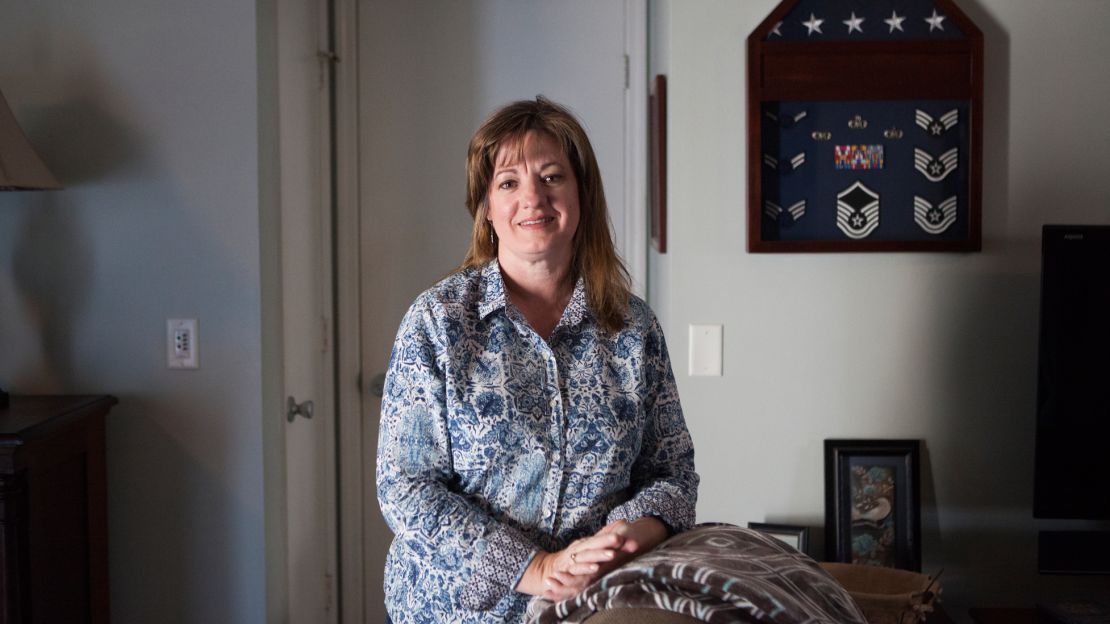
Housel has undergone a few changes since we met at a Cruz event in Charleston, South Carolina, one year ago. At the time, she was uncertain how she would vote in the primary. She said she was leaning toward Cruz, but also liked Carson because “they’re Christians, they both love America, they both respect America and they’re pro-life.” She gave the nod to Carson the following week.
Later in the year, General Mills laid off Housel and her entire military sales team, just as the youngest of her four children was starting college. In November, she cast her vote for Trump.
“I took my daughter to vote for the first time,” Housel said recently, as she described her Election Day experience. “I’m crying. This is our candidate. This is what it’s come to. I’m voting for the ‘You’re fired!’ guy. I wondered whether I was making the right choice. I feel like I’m making the right choice, but it isn’t what I originally wanted. I wanted someone who had been in the political realm, who had been in the military. Donald Trump is not in my grouping. He does not live in a house like I live in. I cried, but I just prayed that I was making the right decision, that our country was making the right decision.
“And then that night we stayed up and watched the results,” she said. “It wasn’t like a high-five kind of thing. It was more like when 9/11 happened – the heaviness of it. In the weeks after 9/11, when President Bush was talking, this was going to be a long haul. That’s how I thought this was – this was going to be a long haul.”
Housel is less nervous about her decision now.
“I don’t have any red flags,” she said last week. “I’m just seeing how it goes, hoping for the best.”
Housel was comforted when she saw Trump interviewed with his family shortly after the election. “That Donald Trump I liked,” she said. She was moved when he flew to Dover Air Force Base to receive the remains of a Navy SEAL killed in a raid in Yemen. She thinks he has a strong work ethic, as evidenced by his early meetings with several other heads of state. And she appreciated how Trump praised Gen. Michael Flynn, his former national security adviser, even as he fired him.
That Flynn’s ouster came amid concerns about his interactions with Russia “wasn’t high on my radar,” Housel said, though she supports congressional investigations to make sure the government is “above board.”
Like many Trump supporters, Housel is not troubled by negative news reports about Trump. In fact, she shares his assessment that journalists are not always honest (though she said she felt sheepish about saying that to an actual journalist).
“I was raised as a young girl not to trust the media,” she said. Housel told me that her father, an Army veteran, offered this cold counsel: “If you’re ever in a wartime situation, shoot the guy with the camera and then the enemy.”
Housel also took to heart the admonitions of her husband, a retired Air Force life-support technician. When he was on active duty, she said, “something would happen and he called me and said, ‘You’re going to see something in the paper and it’s not true, we didn’t do what they said.’”
None of that is to say that Housel doesn’t follow the news on CNN or in Newsweek. She just does so with a skeptical eye.
Neither does she take Trump’s every pronouncement as Gospel. In some cases, she agrees with his appraisal of a problem, but not necessarily his prescribed solution.
For instance, Housel is concerned about illegal immigration, but “iffy” about Trump’s proposal to build a wall on the Mexican border.
“I’m originally from Arizona. Arizona has been inundated with immigrants who are not wanting to abide by American rules. They want to just take,” she said. “They are a drain on the system for many, many years. I don’t like that. Come over, abide by our rules….They are allowed to get assistance like food stamps and housing assistance. They’ve been here for many years and they’re able to go to college free. And I’m thinking, I’m paying for three kids to go to college.” (Of course, plenty of immigrants support themselves, pay taxes and put their children through college.)
Trump has taken aim at sanctuary cities, and Housel agrees with him that protecting undocumented immigrants who have broken other laws is “un-American.” Yet, she added: “If my neighbor was an undocumented immigrant, would I call to turn them in? I don’t think I would.”
Housel said Trump was “wise” to pause immigration from some countries. “I want to feel safer,” she said.
She was displeased that federal courts blocked enforcement of Trump’s travel ban. “Why would you ban that?” Housel asked. “Why would you go against the president?”
However, she is worried that he is too much of an isolationist.
Housel is less circumspect about Obamacare, and her desire for Trump to make good on his pledge to repeal and replace it. “As my kids phase out of our insurance, they’re being fined for not having insurance,” she said. “I don’t agree with making insurance mandatory.”
For the first time, Housel said, she and her husband voted for different candidates. Their adult children had divided loyalties as well. But now, she said, they’re all rooting for Trump.
“I want his presidency to be remarkable,” Housel said. “If you’re in an airplane, you don’t want the airplane to go down.”
CORRECTION: This story has been updated to correct the spelling of Beaufort, South Carolina.


